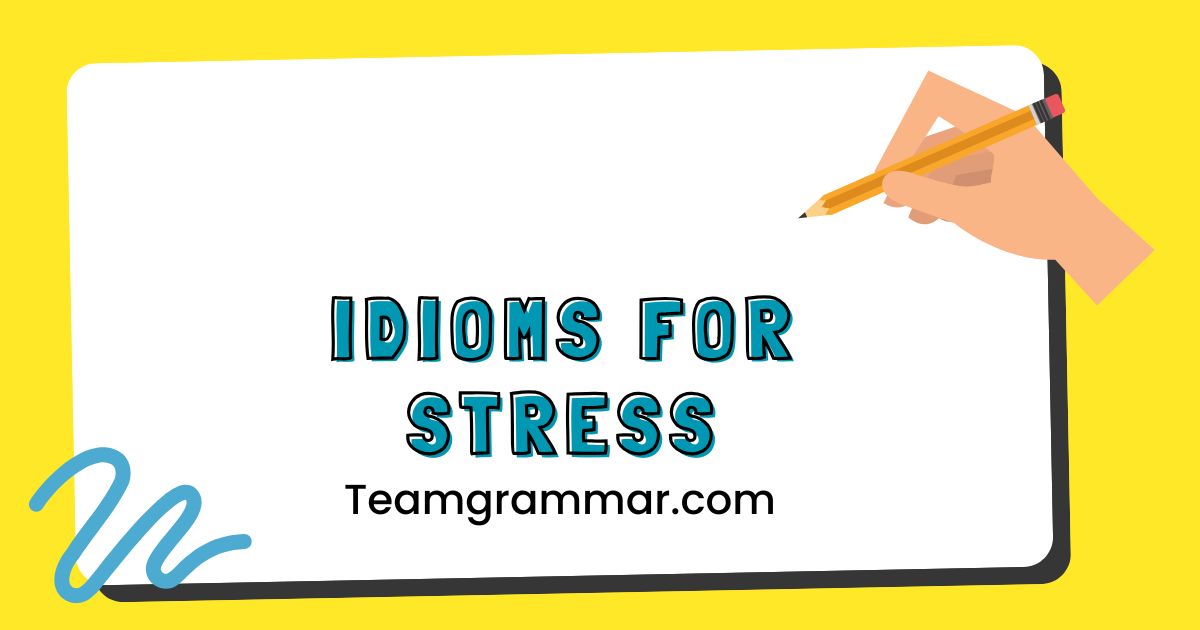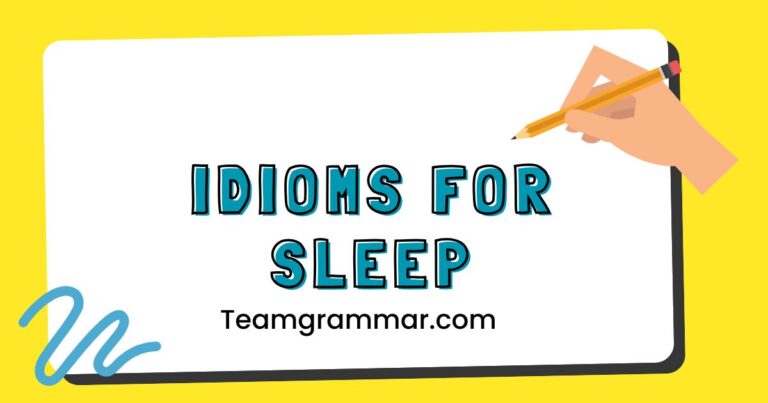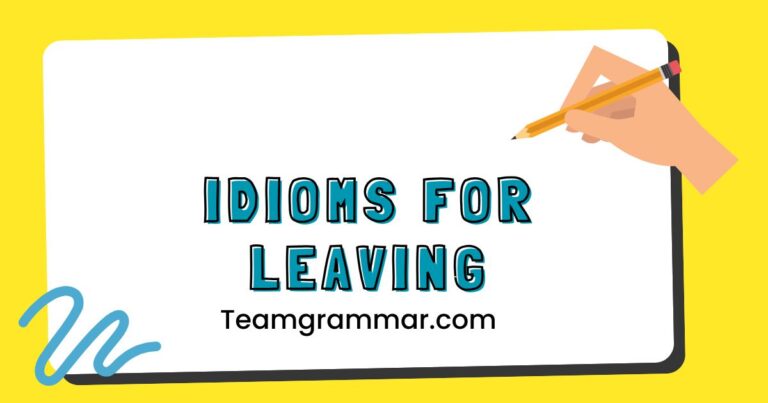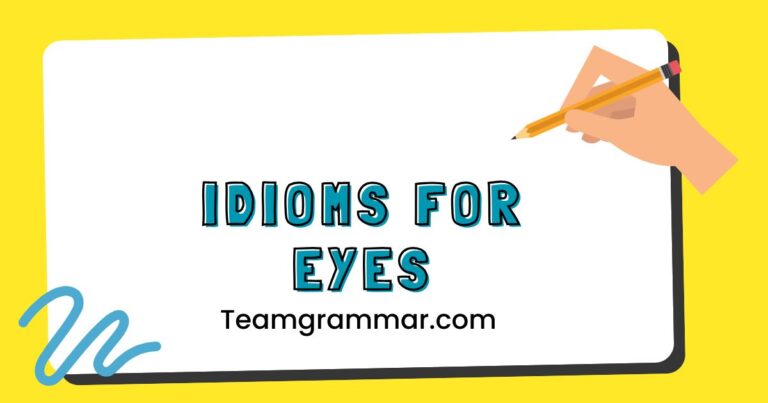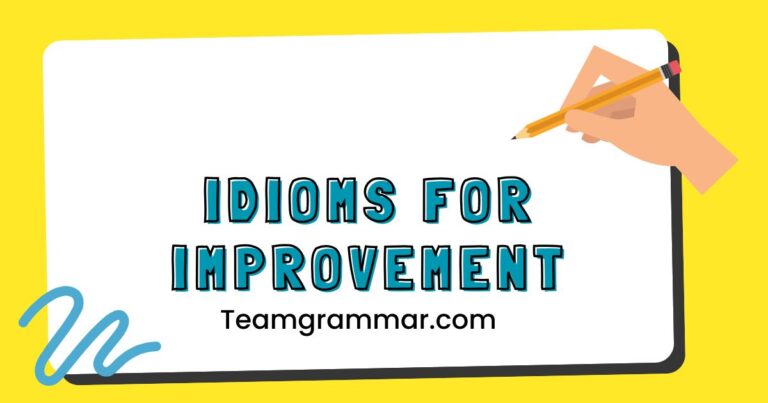29 Idioms for Stress: Master English Expressions
Stress is a universal experience, and the English language offers a rich tapestry of idioms to describe how we feel when under pressure. Mastering these idioms not only enhances your vocabulary but also allows you to express yourself more vividly and understand native speakers more effectively.
This article provides a comprehensive guide to idioms related to stress, covering their meanings, usage, and examples. Whether you’re an English language learner or a native speaker looking to refine your communication skills, this guide will equip you with the knowledge and tools to navigate the nuances of expressing stress in English.
This article is designed for English language learners of all levels, from beginner to advanced, as well as native English speakers who want to expand their knowledge of idiomatic expressions. By exploring the definitions, structural breakdowns, categories, and usage rules of stress-related idioms, you’ll gain a deeper understanding of how to use these expressions accurately and appropriately in various contexts.
Practical exercises and common mistake sections will further solidify your understanding and help you avoid common pitfalls.
Table of Contents
- Definition of Idioms for Stress
- Structural Breakdown of Idioms
- Types and Categories of Stress Idioms
- Examples of Idioms for Stress
- Usage Rules for Stress Idioms
- Common Mistakes with Stress Idioms
- Practice Exercises
- Advanced Topics: Nuances and Context
- Frequently Asked Questions (FAQ)
- Conclusion
Definition of Idioms for Stress
An idiom is a phrase or expression whose meaning cannot be understood from the ordinary meanings of the words in it. In other words, it’s a figurative expression that has a meaning different from the literal meaning of its individual words.
Idioms for stress are specific expressions that describe feelings of anxiety, pressure, or being overwhelmed. These idioms often use vivid imagery and metaphors to convey the intensity of stress in a relatable way.
They are crucial for understanding and engaging in natural, fluent English conversations.
The function of idioms for stress is to provide a more colorful and nuanced way of expressing feelings of pressure, anxiety, and being overwhelmed than simple vocabulary can offer. They add depth and emotion to communication, making it easier to connect with others on an emotional level.
They are particularly useful in informal contexts, such as conversations with friends, family, or colleagues, but can also be used in more formal settings if the tone is appropriate.
The context in which idioms are used is critical. Some idioms are more appropriate for informal settings, while others can be used in more formal contexts.
It’s essential to consider your audience and the overall tone of the conversation when choosing an idiom. For example, saying “I’m pulling my hair out” might be fine among friends, but “I’m feeling quite overwhelmed” might be more suitable in a business meeting.
Understanding the nuances of each idiom will help you use them effectively and appropriately.
Structural Breakdown of Idioms
Idioms, by their nature, defy a strict grammatical structure. They are fixed expressions, meaning the words and their order cannot be changed without altering the meaning or rendering the idiom nonsensical.
However, it’s helpful to understand some common patterns found in idioms for stress. Many idioms involve verbs combined with prepositions (e.g., “stressed out”), nouns with adjectives (e.g., “a bundle of nerves”), or metaphorical comparisons (e.g., “like a deer in headlights”).
Understanding these patterns can help you recognize and remember idioms more easily. For example, many idioms use metaphors related to physical sensations to describe emotional stress (e.g., “my head is spinning”).
Recognizing this pattern can help you infer the meaning of similar idioms you encounter in the future. Additionally, paying attention to the specific words used in an idiom can provide clues to its meaning.
For instance, the word “boiling” in the idiom “boiling point” suggests a state of extreme pressure and agitation.
While idioms are fixed expressions, they can sometimes be adapted to fit different grammatical contexts. For example, you can say “He is stressed out” or “He feels stressed out.” However, it’s important to be careful when adapting idioms, as changing the words or their order can sometimes change the meaning or make the idiom sound unnatural.
When in doubt, it’s best to use the idiom in its standard form.
Types and Categories of Stress Idioms
Idioms for stress can be categorized based on the specific aspect of stress they describe. Here are some common categories:
General Stress and Anxiety
These idioms describe a general feeling of being stressed or anxious, without necessarily specifying the cause or intensity.
Feeling Overwhelmed
These idioms describe a feeling of being burdened or overloaded with too much to handle.
Under Pressure
These idioms describe a feeling of being pressured to perform or meet expectations, often within a limited timeframe.
Coping with Stress
These idioms describe ways of dealing with or managing stress, whether healthy or unhealthy.
Reaching the Breaking Point
These idioms describe a state of extreme stress where one feels unable to cope any longer.
Examples of Idioms for Stress
The following tables provide examples of idioms for stress, organized by category. Each example includes the idiom, its meaning, and example sentences to illustrate its usage.
General Stress and Anxiety
This table provides idioms related to general stress and anxiety. These phrases can be used to describe a general feeling of unease or worry, without necessarily specifying the cause.
| Idiom | Meaning | Example Sentence |
|---|---|---|
| Stressed out | Feeling anxious and overwhelmed | I’ve been so stressed out at work lately. |
| On edge | Nervous and irritable | Ever since the accident, he’s been constantly on edge. |
| A bundle of nerves | Extremely nervous | Before her presentation, she was a bundle of nerves. |
| Wound up | Tense and anxious | He gets so wound up before a big game. |
| Tense up | Become physically and mentally tense | I tend to tense up when I’m driving in heavy traffic. |
| On pins and needles | Anxious and uncertain about what will happen | We were on pins and needles waiting for the test results. |
| In a state | Very anxious or upset | She was in a state after losing her keys. |
| Hair-raising | Very frightening or stressful | The roller coaster ride was a hair-raising experience. |
| Stressed to the max | Extremely stressed | With the deadline approaching, I’m stressed to the max. |
| Freaking out | Becoming very anxious or agitated | Don’t freak out, we’ll find a solution. |
| Having a cow | Becoming very upset or angry | My dad had a cow when I scratched his car. |
| Up the wall | Very stressed or annoyed | The constant noise is driving me up the wall. |
| Anxious as a long-tailed cat in a room full of rocking chairs | Extremely Anxious | Waiting for the doctor’s call, I was as anxious as a long-tailed cat in a room full of rocking chairs. |
| Rattled | Nervous or worried | He seemed a little rattled by the unexpected question. |
| Frantic | Wildly excited or anxious | She was frantic when she realized her child was missing. |
| Sweating bullets | Very nervous or anxious | I was sweating bullets before my job interview. |
| Biting your nails | Being extremely nervous | She was biting her nails while waiting for the results to come out. |
| Lost sleep over | Worrying so much about something that it keeps you awake | I’ve been losing sleep over these financial problems. |
| Torn up | Emotionally distressed | She was torn up after the argument with her best friend. |
| Worked up | Agitated or excited, usually negatively | Don’t get so worked up about it; it’s not that important. |
| In a cold sweat | Experience intense fear or anxiety | He woke up in a cold sweat after having a nightmare. |
| On tenterhooks | In a state of uneasy suspense | We were kept on tenterhooks waiting for the final decision. |
| Like a cat on a hot tin roof | Restless and agitated | He was like a cat on a hot tin roof waiting for the phone to ring. |
Feeling Overwhelmed
This table includes idioms that describe the feeling of being overwhelmed, often due to having too much to do or handle. These phrases convey a sense of being burdened and unable to cope.
| Idiom | Meaning | Example Sentence |
|---|---|---|
| Overwhelmed | Feeling like you can’t cope with everything | I’m completely overwhelmed with work right now. |
| Burnt out | Exhausted from prolonged stress | After years of working long hours, she was completely burnt out. |
| At the end of my rope | Having no more patience or energy to deal with something | I’m at the end of my rope with these constant problems. |
| Up to my ears | Very busy or overwhelmed | I’m up to my ears in paperwork this week. |
| Snowed under | Having too much to do | I’m snowed under with emails and phone calls. |
| Pulled in all directions | Having too many demands on your time and energy | As a single parent, she feels pulled in all directions. |
| Lost it | Become unable to control your emotions | He lost it when he heard the bad news. |
| Out of my depth | In a situation that is too difficult to handle | I felt out of my depth during the advanced math class. |
| Can’t see the forest for the trees | Too focused on details to see the bigger picture | He’s so focused on the individual tasks that he can’t see the forest for the trees. |
| Stretched thin | Having too many demands and not enough resources | The hospital staff is stretched thin due to the pandemic. |
| Bite off more than you can chew | Take on more than you can handle | He bit off more than he could chew when he volunteered for three projects at once. |
| Drowning in | Having a huge amount of something, usually negative | I’m drowning in paperwork and deadlines. |
| Swamped | Very busy and overwhelmed | I’m completely swamped with work this week. |
| Over my head | Too difficult to understand or handle | The project was over my head, so I asked for help. |
| Burdened with | Carrying a heavy load, either physical or emotional | She felt burdened with the responsibility of caring for her sick mother. |
| At wit’s end | Not knowing what to do next | I’m at wit’s end trying to fix this problem. |
| Come apart at the seams | To be so stressed or upset that you are no longer able to function normally | She felt like she was coming apart at the seams after the divorce. |
| In over your head | In a situation that you cannot deal with | He was in over his head when he took on the management role without enough experience. |
| Run ragged | Exhausted from being forced to work hard or do too many things | The kids have been running me ragged all day. |
| Spread yourself too thin | To try to do too many things at the same time, so that you cannot give enough attention to any of them | She spread herself too thin by volunteering for too many committees. |
Under Pressure
This table presents idioms used to describe the feeling of being under pressure, often related to deadlines, expectations, or difficult situations. These idioms highlight the stress of needing to perform or succeed.
| Idiom | Meaning | Example Sentence |
|---|---|---|
| Under pressure | Feeling stressed because of demands or expectations | He’s been under a lot of pressure to meet the deadline. |
| Sweating it | Worrying about something | Don’t sweat it, everything will be fine. |
| Against the clock | Rushing to meet a deadline | We’re working against the clock to finish the project on time. |
| In the hot seat | In a difficult or uncomfortable position | The CEO was in the hot seat during the shareholder meeting. |
| On the spot | Forced to do something immediately | He was put on the spot when the boss asked him a difficult question. |
| Walking a tightrope | In a risky or precarious situation | The company is walking a tightrope trying to balance profits and environmental concerns. |
| With your back against the wall | In a difficult situation with limited options | We’re with our backs against the wall, so we need to find a solution quickly. |
| Between a rock and a hard place | Faced with two equally unpleasant choices | I’m between a rock and a hard place; I don’t want to lie, but I don’t want to hurt her feelings. |
| Skating on thin ice | Taking a risk | He’s skating on thin ice with his constant tardiness. |
| Walking on eggshells | Being very careful not to offend someone | I feel like I’m walking on eggshells around my boss lately. |
| Keep your head above water | Manage to survive a difficult situation | It’s hard to keep your head above water when you have so many bills to pay. |
| Have a lot on your plate | Having many responsibilities or tasks | I have a lot on my plate right now, so I can’t take on any new projects. |
| Up to your neck in | Deeply involved in a difficult situation | He’s up to his neck in debt. |
| Down to the wire | At the last possible moment | We finished the project down to the wire. |
| Burning the candle at both ends | Working too hard, with little rest | He’s been burning the candle at both ends trying to finish his degree while working full-time. |
| Against the wall | In a very difficult situation with no easy solution | The company was up against the wall due to the economic downturn. |
| On a short fuse | Easily angered or irritated | He’s been on a short fuse since he started working on the stressful project. |
| Take its toll | Have a negative effect | The stress of the job is starting to take its toll on his health. |
| Feeling the pinch | Experiencing financial difficulty | Many families are feeling the pinch due to rising inflation. |
| No room to breathe | Having no time or space for oneself | With all these tasks, there’s no room to breathe. |
Coping with Stress
This table provides idioms related to coping with stress, including both positive and negative strategies. These phrases illustrate different ways people try to manage their anxiety and pressure.
| Idiom | Meaning | Example Sentence |
|---|---|---|
| Take a chill pill | Relax and calm down | You need to take a chill pill and stop worrying so much. |
| Blow off steam | Release pent-up energy or frustration | I went for a run to blow off some steam after a long day. |
| Let off steam | Release pent-up energy or frustration | The kids were running around the backyard to let off steam. |
| Take it easy | Relax and not worry | Just take it easy and everything will be alright. |
| Keep it together | Remain calm and in control | It’s important to keep it together during a crisis. |
| Pull yourself together | Regain control of your emotions | After crying, she pulled herself together and faced the challenge. |
| Ride it out | Endure a difficult situation until it passes | We just need to ride it out until the economy improves. |
| Get a grip | Take control of your emotions | You need to get a grip and stop panicking. |
| Turn to drink | To start drinking alcohol heavily, especially because you are unhappy or have problems | He turned to drink after losing his job. |
| Bury your head in the sand | Ignore a problem or difficult situation | You can’t bury your head in the sand; you need to deal with the issue. |
| Take your mind off things | Distract yourself from worries | I went to the movies to take my mind off things. |
| Get something off your chest | Confess something that has been bothering you | I needed to get it off my chest, so I told her the truth. |
| Count to ten | Pause and calm down before reacting | When I feel angry, I count to ten before saying anything. |
| Vent | Express your negative feelings | I called my friend to vent about my problems at work. |
| Find an outlet | Find a way to express or release your emotions | He found an outlet for his stress by painting. |
| Take a step back | Take a break and reassess the situation | I needed to take a step back to get a clearer perspective. |
| Learn to roll with the punches | Adapt to difficult situations | In this job, you have to learn to roll with the punches. |
| Keep a stiff upper lip | Remain brave and unemotional in the face of adversity | During the crisis, he kept a stiff upper lip. |
| Look on the bright side | Focus on the positive aspects of a situation | Even though we lost the game, we should look on the bright side. |
Reaching the Breaking Point
This table includes idioms that describe reaching the breaking point, where one feels unable to cope with stress any longer. These phrases convey a sense of extreme pressure and potential emotional collapse.
| Idiom | Meaning | Example Sentence |
|---|---|---|
| At the breaking point | Reaching a point where you can no longer cope | She was at the breaking point after weeks of sleepless nights. |
| Ready to snap | About to lose control of your emotions | He was so stressed that he was ready to snap. |
| Losing it | Becoming unable to control your emotions | She lost it when she heard the news. |
| Going to pieces | Becoming emotionally ভেঙ্গে | After the accident, he started going to pieces. |
| Coming undone | Becoming emotionally unstable | She felt like she was coming undone under the pressure. |
| Hitting a wall | Reaching a point where you can’t progress further | I hit a wall in my studies and needed to take a break. |
| At the end of your tether | Having no patience or energy left | I’m at the end of my tether with these constant interruptions. |
| One’s nerves are shot | Extremely nervous or stressed | After the ordeal, his nerves were shot. |
| Frayed around the edges | Exhausted and stressed | After the long journey, she was feeling frayed around the edges. |
| Push someone over the edge | Cause someone to lose control | The constant criticism pushed him over the edge. |
| Out of steam | Having no energy left | I’m completely out of steam after working all day. |
| Had it up to here | Reached the limit of your patience | I’ve had it up to here with the constant complaints. |
| Ready to blow a fuse | About to become very angry | He was so angry that he was ready to blow a fuse. |
Usage Rules for Stress Idioms
Using idioms correctly requires understanding their specific meanings and contexts. Here are some general rules to follow:
- Context is Key: Always consider the situation and your audience when using idioms. Some idioms are appropriate for informal settings but not for formal ones.
- Literal vs. Figurative: Remember that idioms have a figurative meaning that is different from the literal meaning of the words.
- Fixed Expressions: Idioms are generally fixed expressions, meaning you cannot change the words or their order without altering the meaning.
- Natural Flow: Use idioms naturally in conversation. Don’t force them into sentences where they don’t fit.
- Listen and Learn: Pay attention to how native speakers use idioms and try to incorporate them into your own speech.
While idioms are generally fixed, some can be adapted to fit different grammatical contexts. For example, you can use the idiom “stressed out” as an adjective (“He is stressed out”) or as part of a verb phrase (“He feels stressed out”).
However, it’s important to be careful when adapting idioms, as changing the words or their order can sometimes change the meaning or make the idiom sound unnatural.
There are some exceptions to the rule that idioms are fixed expressions. For example, some idioms can be used in the passive voice (e.g., “He was snowed under with work”).
Additionally, some idioms can be used with different tenses (e.g., “He’s been burning the candle at both ends” vs. “He burned the candle at both ends”).
However, it’s important to use these variations carefully and ensure that they sound natural.
Common Mistakes with Stress Idioms
Using idioms incorrectly can lead to confusion or miscommunication. Here are some common mistakes to avoid:
| Incorrect | Correct | Explanation |
|---|---|---|
| I’m very stress out. | I’m very stressed out. | “Stressed” is the correct past participle form. |
| He is under a lot of pressurement. | He is under a lot of pressure. | “Pressure” is the correct noun form. |
| She’s on edges. | She’s on edge. | “Edge” is singular in this idiom. |
| I’m up to my head in work. | I’m up to my ears in work. | The correct idiom is “up to my ears.” |
| Don’t sweating it. | Don’t sweat it. | “Sweat” is used as a verb in this idiom. |
| He’s burning the candle from both sides. | He’s burning the candle at both ends. | The correct idiom is “at both ends.” |
| I am feeling a lot of pinch. | I am feeling the pinch. | The correct idiom is “feeling the pinch.” |
Another common mistake is using idioms out of context. For example, using a very informal idiom in a formal setting can sound inappropriate.
It’s important to consider your audience and the overall tone of the conversation when choosing an idiom.
Finally, some learners make the mistake of trying to translate idioms literally from their native language. This can lead to nonsensical or humorous results.
It’s important to learn the meaning of each idiom in English and use it according to its established usage.
Practice Exercises
Test your understanding of stress idioms with these practice exercises. Choose the correct idiom to complete each sentence.
| Question | Answer Choices | Correct Answer |
|---|---|---|
| 1. I’ve been working so hard lately that I’m completely __________. | a) stressed, b) burnt out, c) relaxed | b) burnt out |
| 2. He’s been __________ to meet the deadline. | a) under pressure, b) over the moon, c) on cloud nine | a) under pressure |
| 3. After the argument, she needed to __________ and went for a walk. | a) chill pill, b) blow off steam, c) take it easy | b) blow off steam |
| 4. I’m __________ with emails and phone calls. | a) snowed under, b) rained on, c) clouded over | a) snowed under |
| 5. He’s __________ trying to balance work and family. | a) pulled in all directions, b) going places, c) sitting pretty | a) pulled in all directions |
| 6. I’m __________ with all these problems; I don’t know what to do. | a) at wit’s end, b) on top of the world, c) in the driver’s seat | a) at wit’s end |
| 7. The constant noise is __________ me __________. | a) getting, down, b) driving, up the wall, c) making, happy | b) driving, up the wall |
| 8. You need to __________ and stop worrying so much. | a) take a chill pill, b) hit the books, c) break a leg | a) take a chill pill |
| 9. I’m __________ with work right now, so I can’t take on any new projects. | a) having a blast, b) having a ball, c) swamped | c) swamped |
| 10. He was so stressed that he was ready to __________. | a) snap, b) chill, c) cruise | a) snap |
Exercise 2: Rewrite the following sentences using a stress idiom.
| Original Sentence | Rewritten Sentence |
|---|---|
| I am very busy with work. | I’m up to my ears in work. |
| He is under a lot of pressure to succeed. | He’s under a lot of pressure. |
| She is very nervous about the exam. | She’s a bundle of nerves about the exam. |
| I need to relax after a long day. | I need to take it easy after a long day. |
| He is working too hard and not getting enough rest. | He’s burning the candle at both ends. |
| I can’t handle all these tasks anymore. | I’m at the end of my rope. |
| She is very worried about the financial situation. | She is feeling the pinch. |
| He is trying to manage a difficult situation. | He is trying to keep his head above water. |
| I need to confess something that has been bothering me. | I need to get something off my chest. |
| She is about to lose control of her emotions. | She is ready to snap. |
Advanced Topics: Nuances and Context
For advanced learners, understanding the nuances and contextual appropriateness of stress idioms is crucial. Some idioms are more formal or informal than others, and some are more appropriate for certain situations.
For example, the idiom “having a cow” is very informal and should only be used in casual conversations. On the other hand, the idiom “feeling overwhelmed” is more neutral and can be used in both formal and informal settings.
Additionally, some idioms have cultural connotations that may not be immediately obvious. For example, the idiom “keep a stiff upper lip” is associated with British culture and implies a stoic approach to dealing with stress.
Understanding these cultural nuances can help you use idioms more effectively and avoid misunderstandings.
Finally, it’s important to be aware of regional variations in idiom usage. Some idioms are more common in certain regions or countries than others.
For example, the idiom “sweating bullets” is more common in American English than in British English. Paying attention to these regional variations can help you sound more natural and avoid using idioms that are unfamiliar to your audience.
Frequently Asked Questions (FAQ)
- What is the difference between an idiom and a proverb?
An idiom is a phrase whose meaning is different from the literal meaning of its words, while a proverb is a short, well-known saying that expresses a general truth or piece of advice. Idioms are more about figurative language, while proverbs are about conveying wisdom.
- How can I learn more idioms for stress?
Read books, watch movies and TV shows, and listen to native English speakers. Pay attention to the idioms they use and try to incorporate them into your own speech. You can also use online resources and idiom dictionaries to expand your vocabulary.
- Is it okay
of my speech. You can also use online resources and idiom dictionaries to expand your vocabulary.
- Is it okay to use idioms in formal writing?
It depends on the idiom and the context. Some idioms are appropriate for formal writing, while others are too informal. When in doubt, it’s best to use more neutral language.
- How can I avoid using idioms incorrectly?
Pay attention to how native speakers use idioms and practice using them in different contexts. If you’re unsure about the meaning or usage of an idiom, look it up in a dictionary or ask a native speaker.
- What are some other ways to express stress in English?
In addition to idioms, you can use descriptive language to convey your feelings. For example, you can say “I’m feeling anxious,” “I’m under a lot of pressure,” or “I’m overwhelmed with work.”
- Are there any idioms that describe positive stress?
Yes, some idioms can describe positive stress or excitement. For example, “pumped up” means feeling excited and energized, and “on a high” means feeling very happy and positive.
- How do I explain an idiom to someone who doesn’t understand it?
Start by explaining the literal meaning of the words in the idiom, then explain the figurative meaning. Provide examples of how the idiom is used in context.
- Can idioms have multiple meanings?
Yes, some idioms can have multiple meanings depending on the context. It’s important to understand all the possible meanings of an idiom before using it.
- Why is it important to learn idioms?
Learning idioms can help you understand native speakers more effectively, express yourself more vividly, and sound more natural in conversation. It can also enhance your overall understanding of the English language and culture.
Conclusion
Mastering idioms for stress is a valuable skill for English language learners and native speakers alike. By understanding the meanings, usage rules, and contextual appropriateness of these expressions, you can communicate more effectively and connect with others on an emotional level.
This guide has provided a comprehensive overview of stress idioms, covering various categories, examples, and practice exercises. By incorporating these idioms into your vocabulary, you can enhance your communication skills and navigate the nuances of expressing stress in English with confidence.
Remember to use idioms thoughtfully and consider your audience and the overall tone of the conversation. With practice and attention to detail, you can master the art of using stress idioms and become a more fluent and expressive English speaker.
Keep exploring, keep learning, and keep practicing to unlock the full potential of English idiomatic expressions.

